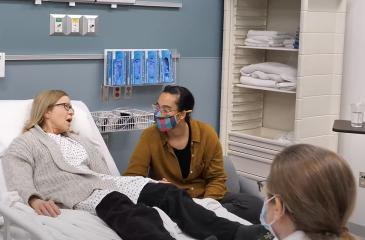One of our challenges in educating our next generation of caregivers is teaching them how to effectively communicate with patients and their families.
Since 1963, standardized patients or SPs have been an integral part of simulated situations to represent authentic clinical encounters. SPs do this most often by portraying patients in simulated encounters with health sciences learners, providing constructive written and verbal feedback to learners, and assessing learners. SPs are regular people; they often function in the roles of patient, client, family members and loved ones, and other health care professionals. This creates a safe space for learners to make mistakes, to receive feedback on their interactions, and to apply knowledge gained from the simulated experience to future clinical practice.
In addition to providing an accurate and functional clinical environment, an experienced simulation education team of M Simulation faculty and staff train our SPs. SPs have hours of instruction, scripted histories and directions on how to accurately recreate a specific condition. Truly part of the educational team, SPs also provide constructive feedback to health sciences learners on their communication skills from the patient perspective. SPs of all ages, gender-identifications, races/cultures, and backgrounds are recruited from the community to help create authentic and diverse scenarios. There are currently 330 SPs who serve on-call for education across the health sciences at our Twin Cities, Duluth, and Rochester campuses, as well as for online simulation training events that stretch across the United States.
M Simulation is an incredible resource for our health care education programs that ensures our learners are well prepared to enter the workforce. Learn more about the SP program here
Advancing Interprofessional Education and Training
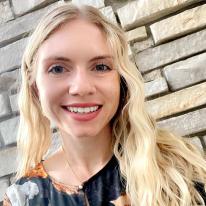
Students: What Do You Enjoy Most About Interprofessional Activities?
“Interprofessional activities give health care professional students the opportunity to learn with, from, and about each other, and really this is where my passion for IPE began. Interprofessional activities developed by the 1Health team are fun, engaging and challenging by requiring the roles and expertise of other professions to accomplish a goal. Interprofessional activities give students the opportunity to experience the benefits of working together on a team and learn what went well, what didn’t go well, and how to improve next time. This is part of the art of building effective teams. The exposure of interprofessional activities early on in training prepares graduates for collaborative practice.” - Ally Taubenheim, RN, PHN, BSN, doctor of nursing practice student.

The Center for Interprofessional Health recently launched the Preceptor in Action WILD (Workplace Interprofessional Learning and Development) series that focuses on building tangible collaborative practice and precepting skills. Thirty-four health professionals from seven different professions participated in the first six-week offering, which focused on communication.
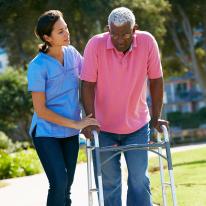
Educational Resources on Geriatric Mobility
The Minnesota Northstar GWEP, based at the U of M, is offering an up-to-date, concise resource for teaching specific geriatric care content as well as teaching tips to engage health professional students in practice settings. Colleagues in the health sciences, including PT/OT, are encouraged to check out “Precepting Tips for Mobility Disability.” Preceptor resources are also available for anyone teaching health professional students in clinical environments. An interprofessional group of geriatric experts has created precepting tips on the 4Ms framework of an age-friendly health system, precepting tips for geriatric depression, and general preceptor resources.
Partnering with Communities
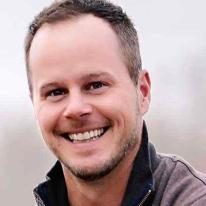
Project REACH Highlight: Maternal Health Outcomes for Indigenous Women in Itasca County
Adam Pavek, PharmD, one of the three inaugural members of the Project REACH cohort, created a policy proposal focused on impacting maternal health outcomes for Indigenous women in Itasca County. Throughout the program, Pavek met with a number of stakeholders in his community and across northern Minnesota. Related to his policy problem on maternal and infant morbidity and mortality, he has improved the tracking process for Itasca County's healthy pregnancy program, reporting and engaging with tribal providers and members, local providers and OB/GYN groups, and enhanced program participation to improve maternal and infant health outcomes.
U-Wide Events and Opportunities
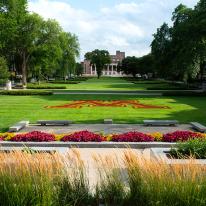
Institute on the Environment Recruiting Students for Graduate Leaders Cohort
Are you interested in ecosystem health, agriculture + climate, renewable energy, or socio-environmental systems? Are you a graduate or professional student from the Twin Cities interested in developing your facilitation and leadership skills? The Institute on the Environment is seeking eight students to serve as IonE Graduate Leaders to facilitate cohorts of IonE Graduate Scholars. IonE Graduate Leaders are paid a $2,000 stipend and participate in a year-long leadership development program. Positions are open until filled. Interviews will be conducted the first two weeks of July, and candidates will be selected and notified no later than July 31.

Trauma and the Rule of Two: Why Trauma Symptoms Show Up When They Do
This webinar on Aug. 4, hosted by the Bakken Center for Spirituality & Healing and led by licensed therapist and certified coach Jane McCampbell Stuart, will answer questions along with a framework to understand trauma – what it is, what it looks like, how to meet it, and how to conceptualize symptoms as an invitation to healing and growth.
